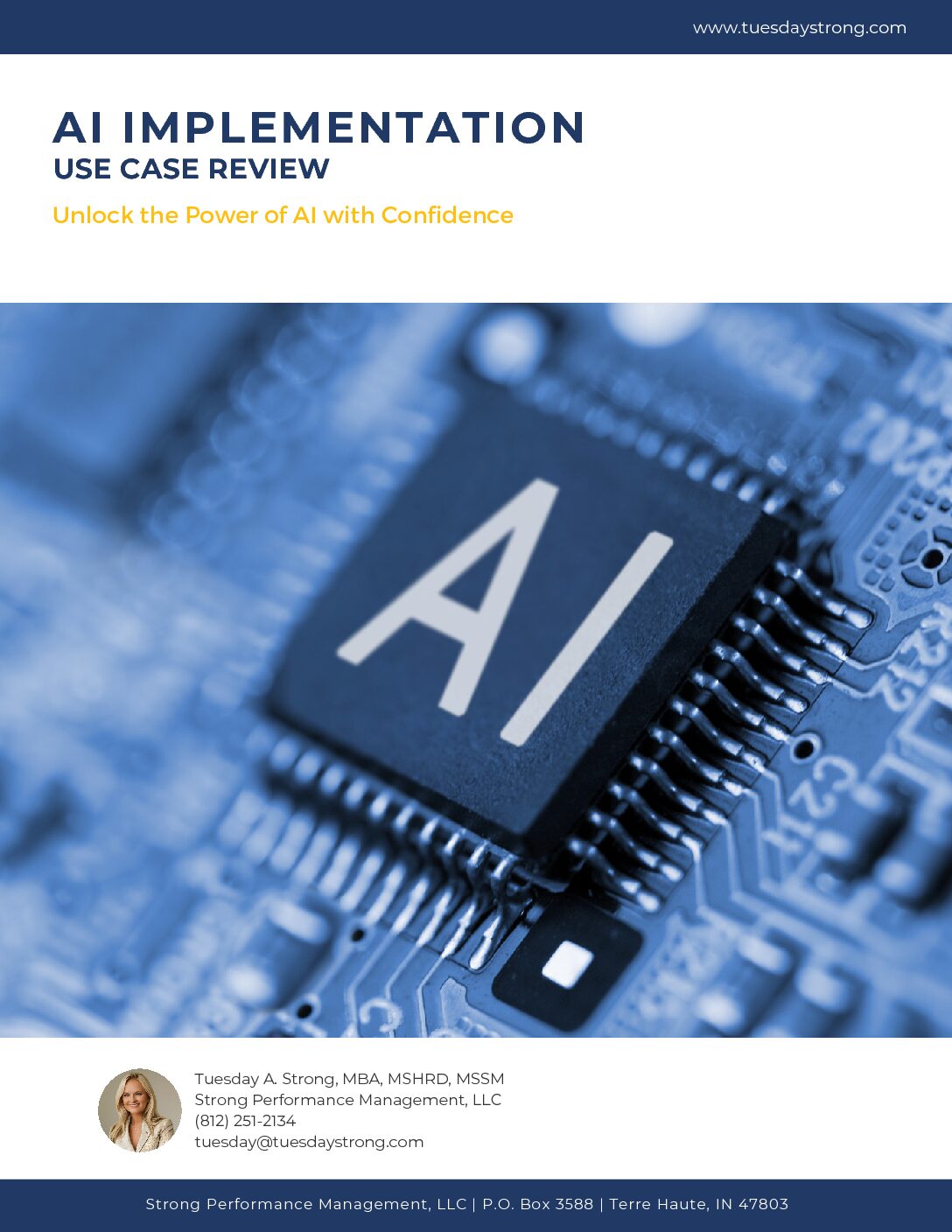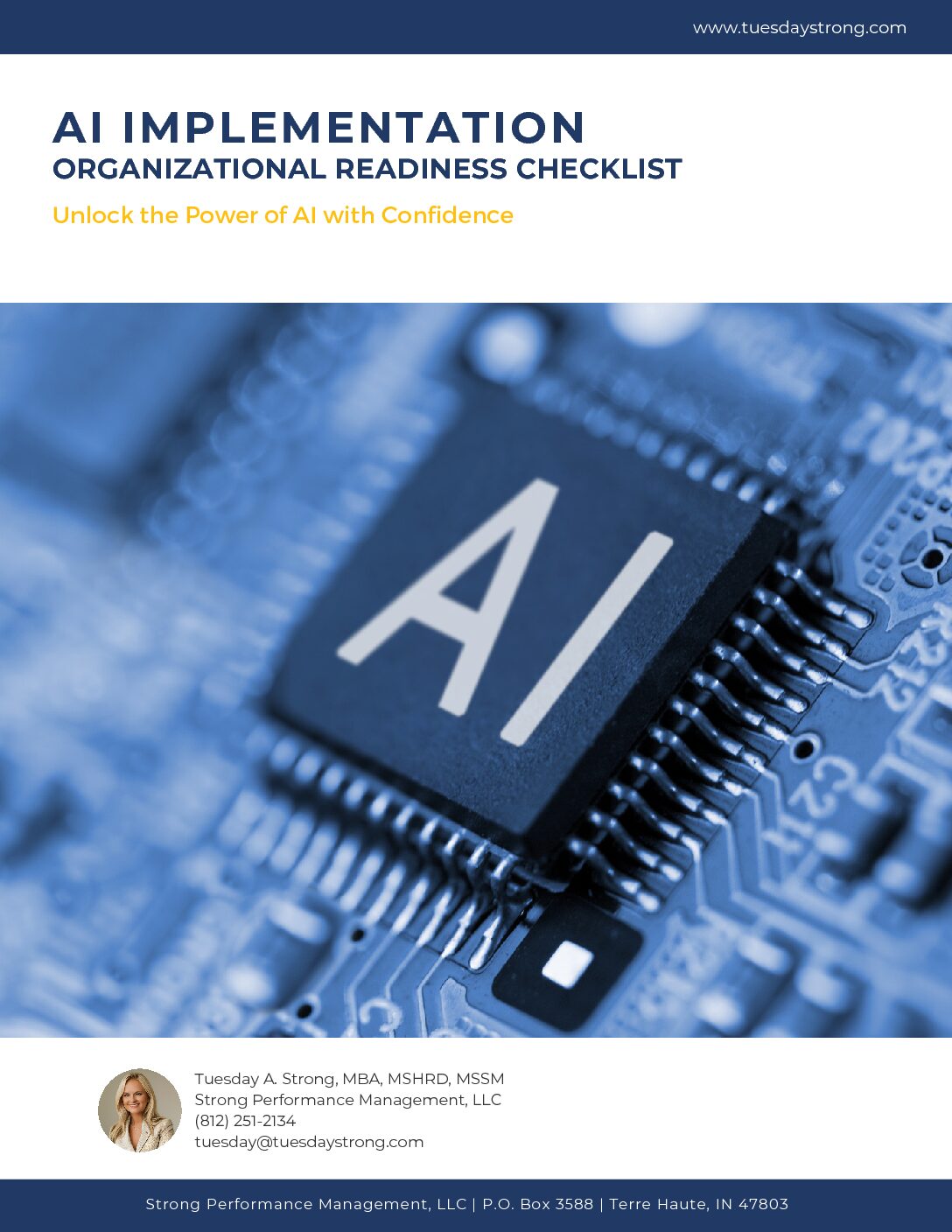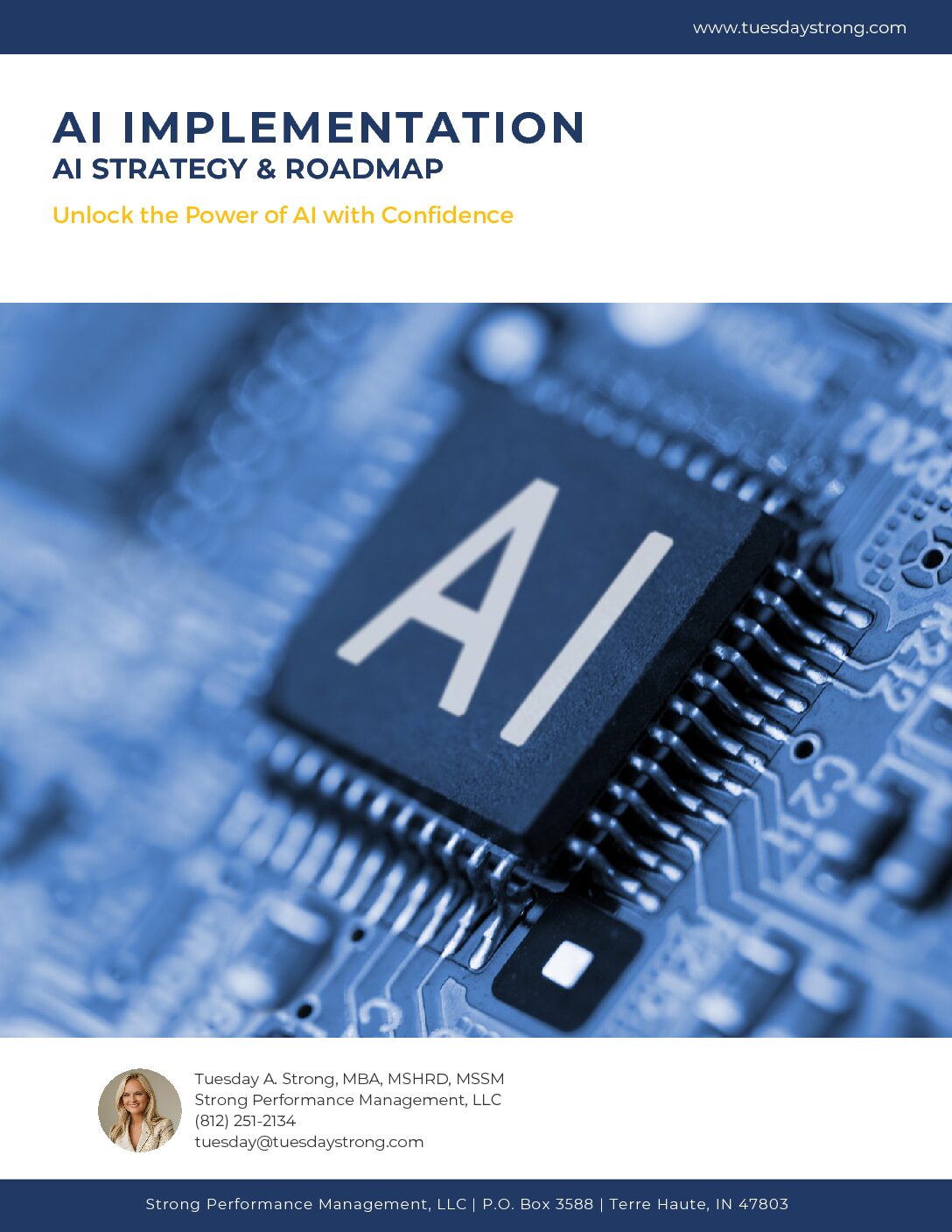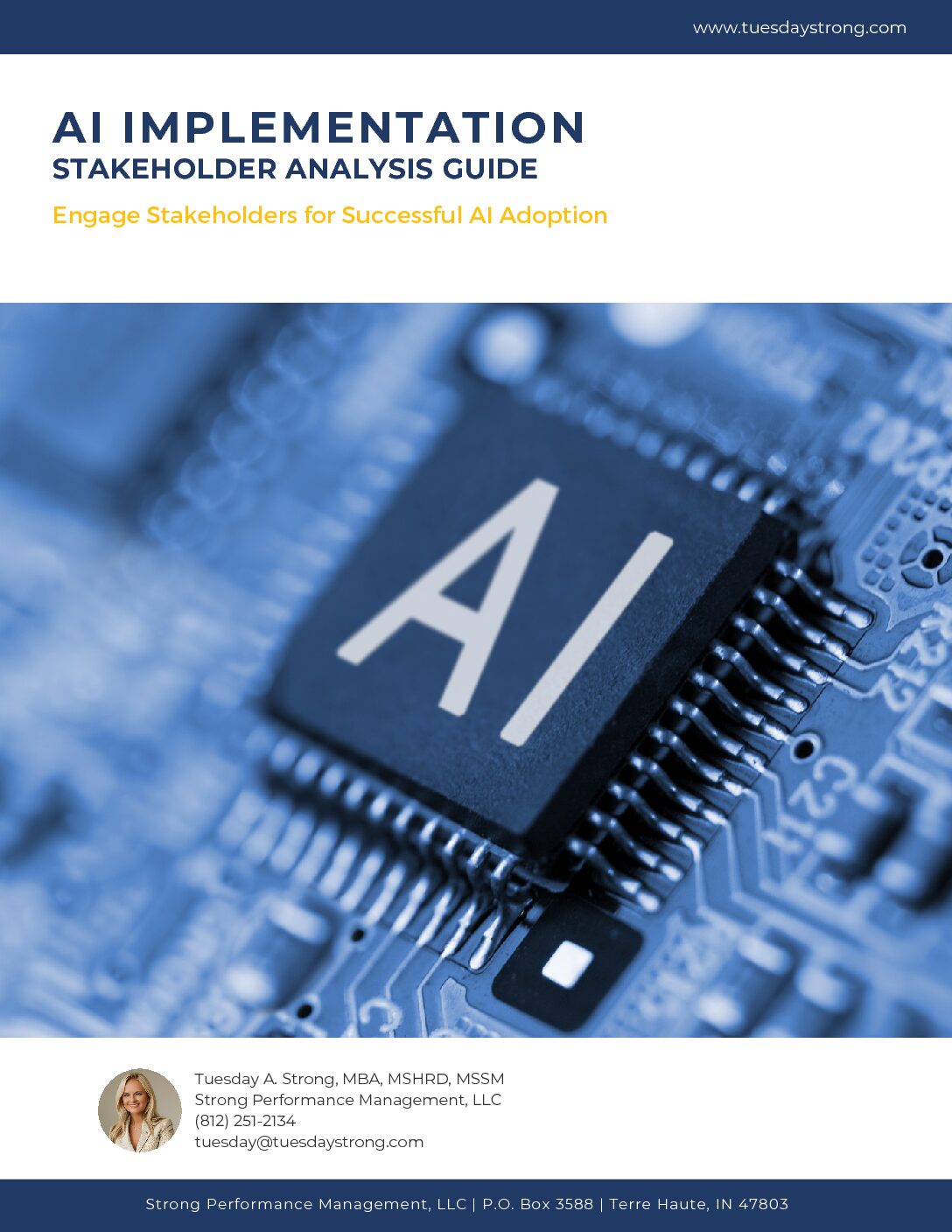Description
AI Use Case Review Guide & Template
Empower your organization to unlock the full potential of AI with our AI Use Case Review Guide & Template. This comprehensive tool is designed for leaders who are evaluating the potential of specific AI applications within their organization. It provides a structured approach to assess the feasibility, strategic alignment, and impact of AI use cases, ensuring that AI projects are viable and aligned with the organization’s capacity and strategic goals.
How to Use This Guide & Template
This 20-page guide and template serves as a systematic tool to review AI use cases, helping organizations prioritize AI initiatives that deliver the most value. By evaluating technical, economic, and strategic aspects, leaders can make informed decisions about which AI projects to pursue.
Sections:
1. Use Case Title: Clearly state the name of the use case.
2. Description: Provide a brief description of the use case and its objectives.
3. Business Function: Specify the business function that will benefit.
4. Problem Statement: Define the specific problem the AI use case aims to address.
5. AI Solution: Describe the AI technology or approach that will be used.
6. Expected Benefits: List the anticipated benefits such as improved efficiency, cost savings, or enhanced customer satisfaction.
7. Measures of Success (KPIs): Identify the key performance indicators that will track progress and measure success.
8. Use Case Owner: Assign an accountable owner for driving and delivering the AI use case.
9. AI Approach and Required Data: Specify the AI techniques to be employed and the data requirements.
10. Ethical and Legal Considerations: Assess potential ethical risks and legal/regulatory compliance requirements.
11. Technology and Infrastructure Needs: Outline the technology stack and infrastructure required.
12. Skills and Capacity: Evaluate existing skills gaps and resource capacity needs.
13. Implementation Plan: Develop a roadmap for implementing the AI use case.
14. Change Management: Devise a strategy for managing organizational change resulting from the AI implementation.
15. Stakeholders: Identify key stakeholders involved in the use case.
Evaluate AI Use Cases:
• Technical Feasibility: Data availability, infrastructure, and skills.
• Economic Feasibility: Cost-benefit analysis, ROI, and scalability.
• Strategic Alignment: Support for long-term vision, competitive advantage, and stakeholder impact.
Organizational Readiness:
Assess the organization’s readiness for AI adoption based on leadership support, change management capability, data governance, technology infrastructure, skills and talent, financial resources, and innovation culture.
Supporting Spreadsheet:
The document is supported by a spreadsheet that allows users to capture and analyze their input, facilitating a comprehensive review and ensuring successful AI implementations.
Equip your organization with the tools needed to make informed, strategic decisions about AI implementations. Purchase the AI Use Case Review Template today and lead the way in leveraging AI for business success.
Learn more about Tuesday Strong, MBA, MSHRD, MSSM, the creator of our AI implementation guides and templates.





